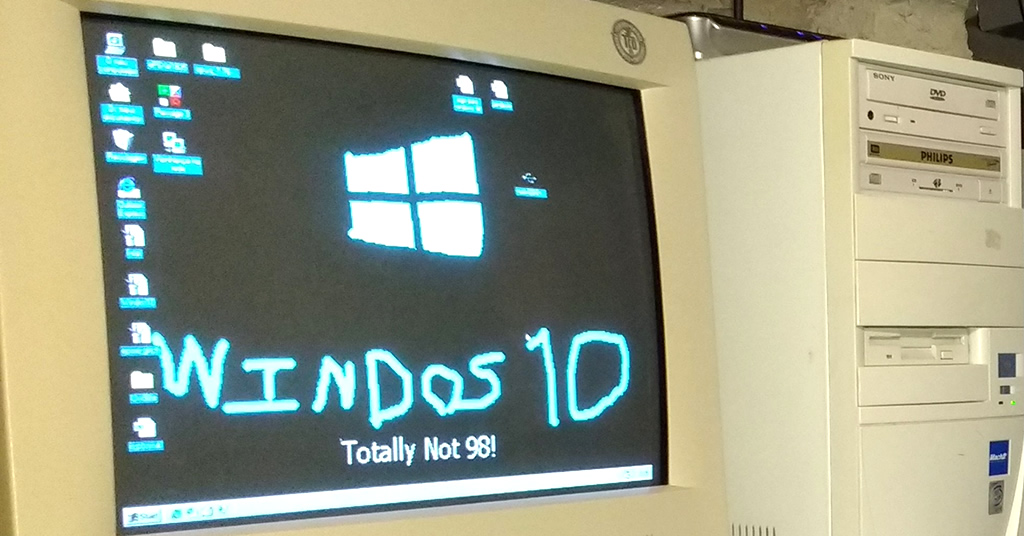You, the CEO of a small business, are under attack. Right now, extremely dangerous and well-funded cybercrime rings in China, Russia and the Ukraine are using sophisticated software systems to hack into thousands of small businesses like yours to steal credit cards and client information, and swindle money directly out of your bank account. Some are even being funded by their own government to attack American businesses.
Don’t think you’re in danger because you’re “small” and not a big target like a J.P. Morgan or Home Depot? Think again. 82,000 NEW malware threats are being released every single day and HALF of the cyber-attacks occurring are aimed at small businesses; you just don’t hear about it because it’s kept quiet for fear of attracting bad PR, lawsuits, data-breach fines and out of sheer embarrassment.
continue reading
Here’s a growing trend creeping into organizations of all industries and sizes: Shadow IT. Shadow IT are unauthorized cloud applications employees are using and downloading to perform work-related activities with company data. This can be file-sharing services like Dropbox or surveys such as Zoomerang. The list goes on and on.
So what’s the problem? For starters, if you’re in a highly regulated industry like medical or financial services, you’re almost guaranteed to be flagrantly violating data privacy laws or at least flirting with them; and if you’re audited, you could end up facing BIG fines, not to mention legal fees and bad PR. Second, the barrier to entry is LOW. Anyone with a browser and a credit card can purchase or enroll themselves into applications that integrate with your organization’s critical applications and/or store company data such as client lists, e-mails, files, etc.
Of course, not all cloud apps are bad, but you as the owner and your IT person or company need to at least be AWARE of these applications to determine if they’re a threat to security or a violation of data privacy laws, and simply to keep your confidential information, well, confidential!
For starters, your IT company or person should be constantly monitoring your network for new and unknown software or devices. This can (and should!) be incorporated into routine vulnerability testing. If you’re not sure this is being done now, find out. As Intel founder Andy Grove once said, “Only the paranoid survive.” Once you know what applications are being used, you can set your company firewall to block applications you DON’T want employees to access with company data and devices, and allow those that are company-approved.
Also, make sure you catalogue these sites somewhere by user with the login information for that person. If an employee leaves your organization or is fired, they may remember what the username and password are to these cloud applications and could use them to harm your organization or steal data to sell or give to a competitor. Don’t put yourself at risk!
For what feels like forever now, just about everyone has been forced to modify priorities. As a business owner, you’ve probably been focused on shifting your business to accommodate this world crisis. You may even be investing more of your time in retaining customers and generating new cash flow. If you’re like most people out there, you’ve barely even had time to think about cyber security and protecting your important data.
Maybe you’ve heard the saying “Never let a crisis go to waste.” It’s as if cybercriminals wrote it because that’s exactly what they’re thinking right now. In fact, they’re probably working overtime right now to craft new malware while our lives have been turned upside down. Yes, as you’re focused on your business, hackers are finding new ways into your IT network. Their objective is to steal data and passwords, compromise your clients’ private information and even demand large ransoms.
Did you know that cybercrime is expected to cost $6 trillion by the year 2021? But, now is when hackers are expected to do their absolute most damage.
continue reading
A lot of you may be in a similar spot: You bought your computer four or five years ago. It’s still working, but you’ve noticed small issues that keep cropping up. Slowness might interrupt your workday from time to time. Your computer’s fan might be working overtime to keep its components cool. Though you’re still able to complete necessary tasks, your computer feels – for lack of better term – run down.
Why does this happen? Like all pieces of technology, computers have loosely-defined life cycles. For about four years, your computer tends to function normally. As it reaches the end of its life cycle, however, your computer begins to fail. You may notice some of the issues mentioned above, but more often than not, you won’t notice anything. Many computers don’t show overt signs of failure until it’s too late. This can leave you without key hardware during the times when you need it most.
continue reading
Every year, the number of malware attacks on businesses increase. Symantec’s 2018 Internet Security Threat Report found that between 2017 and 2018, malware increased by 54%.
The term “malware” covers a number of different malicious programs, including ransomware, spyware, viruses, worms, Trojan horses and more. No matter how malware appears, it can be devastating to your business.
continue reading
The world of website design is much different today than it was ten years ago. Since the meteoric rise of mobile devices like smartphones and tablets in the last decade, websites can no longer be designed exclusively with desktop computers in mind. Websites must be adaptable to the user, whether they are sitting at a desk with a monitor, sitting on the sofa with a tablet, or sitting on the bus with a smartphone.
continue reading





